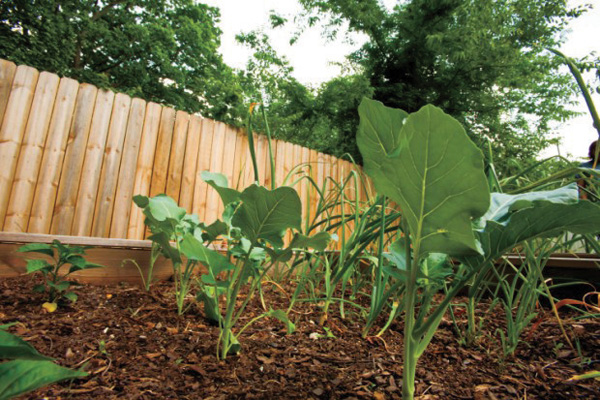
So, the spring bug has bitten and you did it again. You have planted your vegetable garden. Like most Americans, you chose tomatoes. Invariably, peppers, cukes and squash are in it, too. The adventuresome and experienced include less common vegetables. Okra makes a nice fence as it matures. If you are like me, the vegetable space is just not enough to plant in. Maintenance is another story, though.
As exciting as it is to have fresh vegetables, it requires commitment and work: pleasurable work but still work. A garden requires a commitment to show up each day and put some effort in. Now some of you may be juggling that change-over time when the space and the vegetables in the beds are transitioning between spring harvest and summer planting. As the spring vegetables fulfill their purpose, remove the plants. No space to decompose in place. I have seen where gardeners chop and drop used plants. The challenge with that is twofold. First, be sure the plants are healthy. Diseased plants should not be allowed to return to the soil. Secondly, the current crop needs space to breathe. Air circulation does play a pivotal role in minimizing mildew and other moisture problems. If dropping the retired plants hinders the ability of the producing plants to dry their leaves during the day, you risk creating a moisture problem. Why create a problem?
OUT WITH THE OLD
If they are healthy plants when they complete their growing cycle, they should go into the compost pile, where they will decompose and become a humus-like soil which gets added back to the garden later. Things take time and space. The spring and summer clippings and yard debris (without chemicals) can be expected to be ready to return to the growing bed in late fall or even next spring. Garbage, without the meat and bones, as well as newspapers and cardboard boxes without the packaging tape can go into this compost pile. If you haven’t yet used the compost which has been cooking since last year, now is the time to side-dress your summer crop.
ANTICIPATING FALL CROPS
Just as an aside here, when the strawberries are done producing, the time has arrived to plant pumpkins for the fall. If you are planting any fall crop, be mindful of time. How much time does it take for the seed to germinate, then to maturity and finally for full production of the crop. Add the days and start backward from the expected frost date. In Middle Tennessee, that is mid-October. Towards the end of the growing season, consider a soil test. People often think of doing them in the spring. But if your garden needs lime, you will want to add it in the fall. Typically, lime gets added every couple of years. It is a soil additive that has been used in farming for hundreds of years. Why? Liming decreases soil acidity, increases the absorption of fertilizer and reduces certain physiological problems such as blossom-end-rot on tomatoes, peppers and watermelons.
NO MORE WEEDS
As the garden grows, be sure the weeds do not. They compete with vegetable plants for water, nutrients and sunlight. As such, they interfere with yields. Hoe or cultivate the rows or between plants shallowly. You want to avoid losing soil moisture or cutting the roots of desirable plants. Hand-pull weeds in or very near the vegetable row. There will be less damage to vegetable plants and it is easier if weeds are removed while they are small. So every day, as you are inspecting the garden, remove the weeds you see.
DEEP WATERING
A vegetable garden should have 1 to 1½ inches of water a week. Plants develop deeper roots with deep watering. Frequent, shallow watering encourages shallow root development. It is best to apply water in the early morning, before the scorching temperatures and sun interfere with soil absorption. If you use a sprinkler, apply the water slowly to avoid water runoff. A rain measurement gauge will measure the quantity of water received by the plants. With deep watering, plants can go almost a week without watering. It is probably a good habit to get your plants used to.
Any diseases or problem insects need to be dealt with immediately. Either culprit causes plant stress and we want stress-free, happy plants. If you choose to use a chemical on your vegetables, please read and carefully follow directions. You are growing the vegetables to eat them. A recent application of chemical to produce is hazardous to your health. Read and understand the labels.
ALWAYS WASH PRODUCE
Before you use any vegetable for cooking or eating raw, wash it under cold water to rinse off bacteria. Broccoli and cauliflower can sit in cold water for 1–2 minutes. This simple rinsing will eliminate most bacteria. You do not want to wash and then store the vegetables. It is fine to store unwashed fresh produce, even in the fridge! A source of nutrition from foods grown at home may be obtained from Extension PB 1228, “Gardening for Nutrition,” which can be found at UT’s Institute of Agriculture Extension Publications website: extension.tennessee.edu/publications. That website is a great resource.
There is no shortage of reference material on the web but, of course, anyone can post an opinion, which may or may not be a fact, for anyone to read. Do your due diligence for guidance. The extension websites in any state have great and accurate information.













